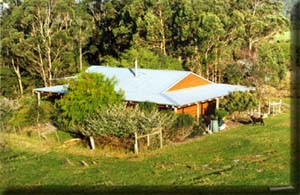|
| ||||||
|
Mitsubishi To Cease Australian Production
by Stephen Walker
6th February, 2008 | |||||
|
Mitsubishi Motors Australia Limited (MMAL) yesterday announced that production of their "380" sedan will cease at their Tonsley Park plant, in Adelaide, late next month. The Mitsubishi 380, which was based on the American Mitsubishi Galant, was introduced to the Australia market in late 2005 as the successor to the long established Magna nameplate. The 380 is a highly regarded large sedan and is amongst the best selling cars in the nation. However, the manufacturing plant only produces the 380. In looking at a broader picture, statistics reveal Mitsubishi's Adelaide plant had its peak production in 1997, when some 58,391 Magna sedans and wagons were manufactured. However, Mitsubishi's Adelaide facility manufactured only 12,423 units in 2006 and production dropped to 10,942 in 2007. Simply, despite the obvious quality of the product, the car is not being manufactured in large enough numbers to make a sustainable business case to continue the model. It is not so much the current model, but on these numbers there can be no case for proposing a successor. And that being the case, the only way forward is to close the door. So called experts have, post announcement, been suggesting Mitsubishi should have been exporting the car and they continue to suggest the only future for Australian car manufacturing is the export market. However, reality suggests that an export market only exists if a product can be sold. The clear fact is that competition is fierce and larger cars are selling in declining numbers. It cannot be overstated that large car makers are in deep financial trouble. In America, Chrysler together with Ford and General Motors are facing financial distress due to falling sales of their larger vehicles. Ford and General Motors are looking at financial ruin due to the fact that their high operating expenses cannot be met whilst their sales are lagging. Hence, Ford and GM have had to 'cash in' some of their best assets. Ford has sold Aston Martin and, shortly, should settle on a deal to sell Jaguar and Land Rover to Tata, the vehicle manufacturer from India. Obviously, the acquisition of Land Rover is a sweetener to take Jaguar. But the value of Jaguar probably rests in the value of future products more so than the current product line-up. General Motors have sold shareholdings in Isuzu and Suzuki. The question is quite simple, why would anyone sell shares in such successful operations as Land Rover or Suzuki? And the answer is just as simple. Cash! And, in the case of Ford and GM, that cash is not for future product development, it is required to meet cash flow objectives to ensure operating expenses are met because of past losses. But the problems are not confined to America. Profit is also a problem for numerous luxury car brands. Jaguar has a major problem, so what will Tata do with it? Is anyone predicting a future for the XJ sedans (saloons)? Volvo has profit problems. If Ford, who own Volvo, can turn the company around I suspect it, too, has to be a likely candidate for sale. Alfa Romeo is rumoured to be in problems. The company has its new 159 on the market, but it isn't well received. For the money Alfa are asking for their new car, buyers are saying we'll take the competitor's product. It's my view, that the large Alfa Romeo 166 will be dropped and not replaced. The unpopular GT is another model that should be axed. Other 'givens' for Alfa Romeo will be severe cost cutting measures and product rationalisation steps. Speculation, in Europe, suggests Alfa Romeo has only 3 years to turn itself around or Fiat will drop the heritage rich brand. BMW is another company facing profit problems. Their problems are so great that their chief is reported to be undertaking visits to investors to offer reassurance that the company is in good hands. Can the unattractive 7-Series remain a proposition in a changing world? There seems no doubt that larger cars are on their way out. The cost of fuel is just reason. Political pressure is the next big thing. Whilst personal mobility has a distinct future, there are questions about what form it will take. Shell Oil's chief has indicated, in Europe, that he believes cars which cannot meet certain fuel consumption requirements should be banned. When an oil company chief calls for the banning of so called 'gas guzzlers' you can be sure things are about to change. The complex business of selling cars to consumers in a global market is a very tough business proposition, as a vast array of varying factors need to be considered. Fortunately, competition means that it is the consumers who decide what models stay and what models go. It's been the same since the dawn of motoring and there is little likelihood of any change any time soon. It isn't time to agonise or apologise for the Mitsubishi 380. It is time to acknowledge that the 380 has been good for those astute enough to have acquired one. And those who acquire the final production will be well served by a car whose time has come. However, all cars on today's market will be gone in just a few years, so history is simply repeating itself. Cars come ..... and cars go. The only loss with the departure of the Mitsubishi 380 is the employment of over 900 workers in Adelaide. There will be an element of sadness in that, particularly for long term loyal employees. But just as countless thousands of retrenched workers over the years, across many industries, have proven ..... when one door closes, another opens. For example, Leyland, Nissan, Peugeot, Renault and Volvo cars have been produced in Australia and the nation has survived their assembly or manufacturing plant closures. Additionally, Ford and Holden have shut down various assembly operations. We all survived that too. The component industry and their employees will survive any short term downturn as well. There will be casualties, no doubt, but that has always been the case in business. So Mitsubishi will continue with quite a good future in Australia. The reason for that is explained by what they offer the Australian motorists ..... Colt, Lancer, Outlander, Pajero, Grandis, Triton and Express. And Mitsubishi has promised more! Mitsubishi gave us a great car in the 380. We'll remember it with joy. We thank the company and their loyal employees for a job well done. And now, as we look to the future, we anticipate Mitsubishi will be providing motoring delights for quite a long time to come. Their products guarantee it! | ||||||
ABN 47106248033 |
 |
All rights reserved. |


